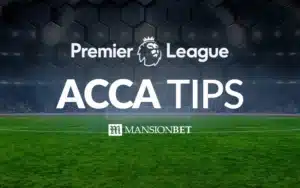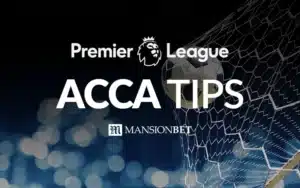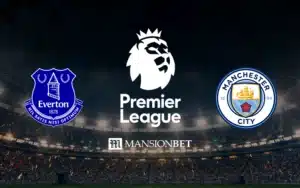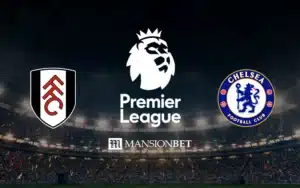The football world has been left reeling by the announcement that twelve of the biggest football clubs in the world are going to form an independent ‘European Super League’. We look at how this new league will work, and what it means for football as we know it today.
How Will the European Super League Work?
The new league consists of 12 teams at the moment, with another three so-called ‘Founding Clubs’ to be named before the start of the inaugural season of the competition. A further five clubs will be able to qualify for the tournament every year based on their performances and achievements over the previous season. We can speculate that this would reward success in the existing European competitions as well as potentially allowing domestic league winners to join the party.
The twelve teams signed up so far are Arsenal, Chelsea, Liverpool, Manchester City, Manchester United and Spurs (from England); AC Milan, Juventus and Inter Milan (Italy); Atletico Madrid, Barcelona and Real Madrid (from Spain). Again it’s only speculation at this point, but the three remaining ‘permanent’ spots could go to clubs like PSG, Bayern Munich and Borussia Dortmund – three of the biggest clubs not to appear on the initial list of breakaway clubs. To date, however, both PSG and Bayern have stated that they will not join the new competition, with Porto and RB Leipzig also rejecting the possibility of joining the tournament. (As have Wrexham, although this may be of less concern to the organisers…)
STATEMENT | ESL
— Wrexham AFC (@Wrexham_AFC) April 18, 2021
Despite the club's two 4-0 victories this week, we can confirm that we will not be seeking membership to the newly uncovered 'European Super League' and will continue our quest to reach the EFL.
The club will be making no further comment.
🔴⚪️ #WxmAFC pic.twitter.com/Qqf9i2GeFf
The European Super League is due to start ‘as soon as practicable’ according to the press release from the Big 12. The competition is to be a mid-week tournament, so the teams signed up to the new league will remove themselves – or be removed – from the Champions League and Europa League. There will be two groups of ten teams, who will play each other home and away, with the top three in each group qualifying for the quarter-finals. The fourth and fifth in each group play each other over two legs to decide the remaining spots. The quarters and semis are to be played over two legs as well, culminating in a one-off final in May at a neutral venue.
Reaction to the New European Super League
As you can imagine, reaction to this news has provoked a considerable amount of angst and anger from the footballing community. Sky Sports pundit Gary Neville spoke for many when he gave an impassioned tirade against the owners of the six Premier League teams to sign up to the breakaway league, including his beloved Man United. Neville certainly doesn’t pull any punches, calling the setting up of the Super League for super-rich clubs ‘an absolute disgrace’ and a ‘criminal act against fans’.
Gary Neville is the people's hero right now. Unreal piece of television about the European Super League. pic.twitter.com/ypdQbdQfs7
— Football Tweet ⚽ (@Football__Tweet) April 18, 2021
The leagues from which the twelve clubs have come have not been slow to fire a few broadsides either. The Spanish, Italian and English FAs released a joint statement condemning what they describe as a ‘cynical project’. FIFA have announced that the renegade twelve clubs will be banned from playing in any domestic or international competitions, and that players at the clubs could be barred from playing for their national teams.
‘It’s war’: what the papers say about the European Super League https://t.co/3ENTbtIHPy
— The Guardian (@guardian) April 19, 2021
Many newspapers in the UK have opted for ‘Civil War’ references in their headlines, with Neville’s ‘criminal act’ quote getting plenty of exposure too. Even Prime Minister Boris Johnson has been moved to tweet out his condemnation of the plan for a breakaway league, describing it as ‘very damaging for football’. Meanwhile supporters groups representing all six of the English clubs involved have been quick to express their anger and dismay. In fact, it is quite difficult to find anyone expressing a positive reaction to this news bar the clubs themselves.
However, one group has remained conspicuously silent about the Super League on social media channels: the players. Whether they are staying silent for contractual reasons or just biding time until the future becomes a little clearer remains to be seen, but for now they remain uncharacteristically shy on their social channels.
How Has the Super League Come into Being?
It’s not difficult to work out why the new European Super League idea has come about, and it’s not as if similar proposals haven’t been discussed before. The announcement at after 11pm on a Sunday night certainly caught people out, but the concept of a breakaway league has been in the ether for years. It was thought that the a re-jigged Champions League format would appease the big clubs, but apparently not. Football is big business, and the owners of the big clubs are interested in the bottom line above everything else. As the following graph shows, those clubs have not been making enough money in recent times, making the Super League idea just too enticing.
Here's a clue as to why 12 clubs have signed up for a European Super League:
— Swiss Ramble (@SwissRamble) April 18, 2021
They lost a combined £1.2 billion in 2019/20 before player sales*
And that was for a season where only the last 3 months were impacted by COVID…
*Liverpool have not yet published their accounts pic.twitter.com/7o1ubiDX6z
The instigator of this plan seems to have been Real Madrid president Florentino Perez, along with Manchester United’s Joel Glazer and Juventus’ Andrea Agnelli. Although contracts had been sent out to the clubs concerned months ago, it seems that the final deals were done in a flurry of activity over the weekend, culminating in that late-night announcement.
An up-front payment of £3.5 billion to be shared out amongst the founding clubs along with the estimated £10 billion per year they are expected to earn from the competition each year probably made the decision easier for the owners of those clubs. JP Morgan is the main financial backer of the project, although they will hope to reap a return on their considerable investment from future TV revenues, sponsorship and other commercial deals.
The Future of Football
Of course, fans are not overly concerned about the profit and loss accounts of their favourite clubs, and the news of the breakaway league has provoked a tidal wage of negative responses. Now we must wait to see what the future will hold for this proposed competition. Will the domestic leagues ban the clubs from their competitions – meaning a Premier League season kicking off without the famed ‘Big Six’? Will the European Championships take place without a host of top international players?
UEFA has threatened to ban every team and player that participates in the newly formed Super League from all UEFA and FIFA competitions at the European and International level, per @FabrizioRomano
— Bleacher Report (@BleacherReport) April 18, 2021
This would include the World Cup. @brfootball pic.twitter.com/vuCWY0ZGMm
The owners of the 12 (soon to be 15) clubs involved will be hoping that fans will come to embrace the new league. They may reckon that international fan-bases of the clubs will be less concerned with traditions of the game and just happy to see their favourite side in action against the best teams in the world every week. In this vision of football’s future, the European leagues and competitions become secondary feeder tournaments to the mighty Super League. Just five clubs from around Europe will be allowed entry to the party, leaving the rest out in the cold, while long-held traditions go by the wayside. International football would become a peripheral concern, unless of course the international bodies relent and allow Super League players to line out for their countries.
A brighter vision of the future – for those who care about the traditions of the game – would see the new Super League fail to take off. German clubs with collective ownership bodies won’t sign up, TV networks won’t line up to buy rights for exorbitant amounts, and sanctions convince the breakaway clubs to return to their domestic leagues. People within the game can also take a stand, as Jose Mourinho is alleged to have done at Spurs. Most importantly, fans have the power to simply switch off, which would kill this new Super League stone dead.
According to reports, Jose Mourinho was sacked for refusing to take his Spurs players out for training because of the Super League news.
— FootballFunnys (@FootballFunnnys) April 19, 2021
👏👏 pic.twitter.com/iYoCEY0OZQ
All this is just speculation for now, but soon we will have a better idea of whether sanctions will indeed be imposed and what that will mean for individual clubs and players. We will also find out just how steady are the 12 renegade clubs in their resolve, and whether the fan backlash will have an impact.
But whatever the future holds, it seems certain that football will never be the same again.




